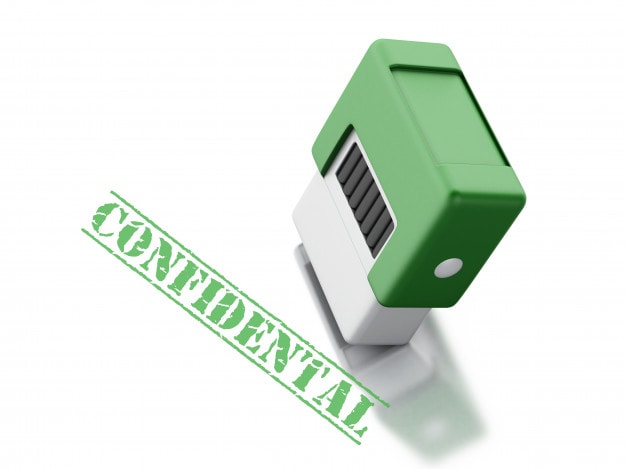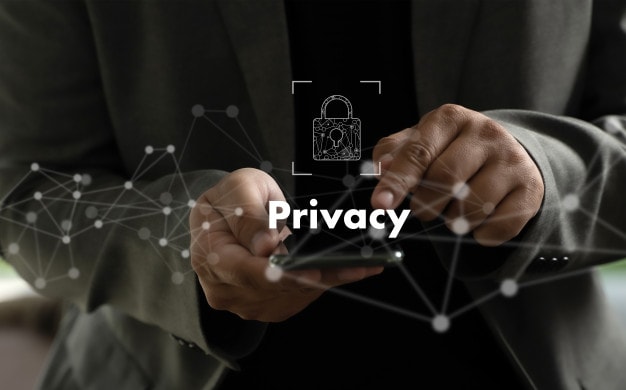Confidentiality in the workplace talks about not sharing, discussing or disclosing confidential information of your business with anyone outside of your company.
Such confidential information can be internal going-on with the workforce, trade secrets, proprietary information, personal details of customers, employee information.
At the time of cut-throat competition, essential data and secret information can make or break any business. With confidentiality in the workplace, companies do not let their necessary information fall into the wrong hands that can misuse that.
That is why; it has become inevitable for businesses to have the right strategies and mechanisms for ensuring confidentiality in the workplace. In this post, you will learn everything that can help a business in securing its confidential information. So, let us start unfolding the layers of concepts of confidentiality in the workplace-
Table of Contents
What is Confidentiality?
In every business, the most critical asset is trust. The clients, employees and the administrators put in a tremendous amount of confidence in the management and the product of the company. The product could be a utility item or a service provided by the company.
This preservation of trust is termed as confidentiality.
It can be defined as the act of keeping secrets and maintaining the privacy of information. There is a lot of sensitive information possessed by the company which needs to be stored safely.
Importance of Confidentiality in the Workplace
Confidentiality is the ability to handle sensitive and essential data. The integrity of the company lies in the capacity to preserve this data. If there is a breach of confidentiality, it may lead to severe consequences since this information could be misused or held at ransom.
Hence, there can be a termination of the contract, or legal actions can be taken against breach of confidentiality.
As we had discussed earlier, in any business, there are three types of information that need foolproof protection. They are:
- Personal data of the client.
- Personal and job-related information of the employees
- Business information or trade secrets also referred to as ‘Proprietary Information’.
Let us go deep into confidential information and understand their role-
1) Personal Information of the Client
It is the personal information of the customers and the clients which they provide with the utmost trust and responsibility.
It can be about the preferences and choices of the client and their expectations from the product.
Even when you ask your leads to provide contact details for subscribing to your portal, you should adequately handle those details by ensuring the confidentiality of that lead.
2) Information of the Employees
The employees need to provide some personal information to the employer that should be protected since a breach in that can cause unpleasant consequences in the professional as well as own lives of the employees.
Along with these necessary personal details, there can be other details that your company may gather about their employees like their performance, training, and expertise.
You need to ensure confidentiality in the workplace in such a manner that other players in the market or mainly, your competitors never get hold of those important details.
3) Proprietary Information
These are business secrets or the trade secrets of a company.
The financial data, budgets, business plans, forecast, and marketing strategies are very vital to a company. The computer programs, datasets, and production formulae also need to be safeguarded.
Such details are so crucial that if they go in the wrong hands, they may disrupt your position in the market. – And that is why you must have the top-notch mechanism to ensure confidentiality in the workplace to safeguard such details.
As you have understood about the critical information that comes in the category of confidential information, you should now understand what kind of scenarios can be considered as the breach of confidentiality in an organization. So, let us know that as well-
What is a Breach of Confidentiality?
The act of violating the norms of privacy of the data can be called ‘breach of confidentiality’.
This information could be related to the client, employee or business at large.
It is said that confidentiality is breached once there is sharing of information to an outsider or an unauthenticated person through unethical or illegal means without the consent of the owner of the data.
There could be severe losses to the business and professional relationships as well.
Ways through which Confidentiality Breach may occur in a Workplace
Confidentiality breach is a dire and sad situation. But, this could be stemmed from very trivial causes as well as from vast scams of forgery or unethical behavior. Some of the ways are:
- Sharing of information by the employees for personal gain or vested interest.
- Leaving confidential in an insecure and vulnerable environment or system.
- Sharing third-party information without their consent or authentication to do so.
- Sharing business secrets for financial gain leading to a decrease in the profits earned by the company.
What will happen if Confidentiality in the Workplace is not Maintained
The breach of confidentiality is a serious crime. It also doesn’t fit in the humanitarian spectrum, causing angst and negativity to spread among the business associations. Some consequences of breaching confidentiality are given below.
- The client or the employee to whom the confidential information belongs might harm themselves physically or cause a social/legal threat.
- On the part of the employee, even an honest mistake leading to a breach of confidentiality may lead to termination of the job and negative recommendation or feedback. It can harm the employee’s career.
- There might also be legal actions that the owner of the information can take. The third-party can press charges against the employee or the company.
- The unethical sharing of information falling under the Public Disclosure Act 1998 protects the employees if it is an honest mistake. But, if it is proved to be done intentionally owning to some gain from the deal, this act may protect the consultants.
- If the company as a whole unit is found to be breaking the law of confidentiality, orders can be issued to check all the activities undertaken by the company and supervise each one of them.
- The clients or employees whose information has been leaking leading to confidentiality breach can demand compensations or pay-outs.
- A breach of confidentiality harms not only in mundane ways but also in intangible ways like breakage of trust, fall in reputation and credibility. This also affects existing and prospective clients.
- If an incident of confidentiality breach comes in public knowledge, the repercussions can be graver. There is a loss of the hard-earned reasonable opinion and credibility.
So, now you must have understood how important it is to ensure confidentiality in the workplace. Now, the question arises how you will safeguard your confidential information? – Let us know that as well-
How to ensure Confidentiality in the Workplace?
1) Be Aware of Confidential Info of your Company
Mark the highly sensitive and confidential information well in advance. Make it known to the person who handles the information and manages the data so that he/she can stay aware and responsible for it.
2) Decide the safest location for sensitive information
Do not store the confidential information at easily accessible locations. It is advisable to change the location of the storage of sensitive data now and then.
3) Have guidelines for the use of confidential info in Personal/Professional Conversations
The personal conversations or even professional conversations out of the scope of the confidential information need to be driven away from sharing confidential information. Also, if you need to share that information inevitably, you should ask for the consent of the owner.
4) Always include confidential clauses
Confidentiality clauses are an essential way to check a breach of confidentiality. These serve as legal bondage against violating the rules of privacy. Non-disclosure agreements and confidentiality agreements also impart the rules and consequences of a breach of confidentiality.
5) Have Guidelines for Intellectual Property
IP stands for Intellectual Property. There are numerous cases of intellectual properties in a business which may be some research material, study results, and so. The IP Assignment Deeds can safeguard these under IP Rights.
In addition to these tips, there are some other hacks that you can try for safeguarding your confidential information. Let us have a look upon those here and now-
Here is a video by Marketing91 on Confidentiality.
Top Hacks to ensure Confidentiality in the Workplace
Below given hacks are some of the smartest ways of ensuring confidentiality in the workplace-
- Proper Labeling
- Inclusion of non-disclosure provisions in the employee agreement
- Limit access in the workplace
- The employee handbook should have a confidentiality policy
- Departing employee should go through exit interview to return all confidential info
- Use shredders or confidential waster bin
- Have lockable document storage cabinets
- Delivery of confidential info should be secure
- Train employees about protecting confidential info
Final Thoughts!
Confidentiality is of the utmost importance in any business.
There needs to be complete trust instilled by the clients and employees, and it should be maintained and preserved by the company. There are many ways to ensure confidentiality.
We hope the ways mentioned above of ensuring confidentiality in the workplace will help you in the process.
Did we miss any of the critical tips that you consider essential for safeguarding confidential information at the workplace? Share with us in the comment section below.
Liked this post? Check out the complete series on Business




